Every business faces unique collections challenges. For companies operating mainly on business-to-business transactions, they often encounter different hurdles when it comes to maintaining profitability.
Whether you run a small business or a Fortune 500 company, it is important to adopt different strategies to ensure your accounts receivable is well-managed, and you are receiving consistent payments from your customers.
What Is The Difference Between B2C And B2B Collections?
One of the biggest differences between collections for business-to-consumer (B2C) and business-to-business (B2B) collections is who you are collecting from. With B2C transactions, typically, there is no gap between the business and the customer. In most cases, payments are made at the time of the purchase, or a payment plan is agreed upon.
B2B transactions are often more nuanced, as customers likely receive different product packages, contract terms, and desired outcomes. In addition, as a creditor, you are not dealing with a single customer, but rather a representative from the accounts payable department.
Tips for Creating Successful Commercial Collections
Stay Proactive With Outreach
One of the most important factors in building a successful business is maintaining strong relationships with your clients. Maintaining consistent communication and outreach with your clients can help facilitate payments and prevent non-payment.
Establish Consistent Billing & Collections Policies
Making sure your accounts receivable team has a clear procedure for collecting payments can have a dramatic impact on your bottom line. Work with your team to establish collections procedures for what happens right after a transaction occurs, when payment is due, and when an account becomes delinquent.
Make Statements & Invoices Easy to Understand
We have all been on the receiving end of an invoice that doesn’t quite make sense. Taking the time to give your billing statements a clean design can help facilitate on-time payments and decrease misunderstandings about your invoicing. Some ways to improve your invoices are:
Make due dates clear and apparent on all documentation.
Make sure your contact information is available on both paper and digital invoices.
Include clear explanations of the charges the client is responsible for paying.
Clearly outline the goods and services provided — avoid using internal abbreviations and jargon.
All of this information helps to create a more transparent invoicing system and provides your clients with a clear explanation of what is expected of them.
Establish Payment Plans
For many clients, spreading out payments monthly or quarterly can lessen the burden on their business while providing you with consistent cash flow for your services. Receiving payment in one lump sum is preferable, but providing your clients with flexible payment plans can strengthen your relationships with your clients and ensure each account is paid in full.
Know Your Limits
Managing and collecting on delinquent accounts can turn into a full-time job for your staff. While every business experiences ebb and flow throughout the fiscal year, it is important to identify if your clients’ hardships are going to cause issues for your business.
Working with a commercial collection agency can reduce the burden on your staff and increase the likelihood of receiving full payments. Agencies like Kinum, Inc. are wholly focused on providing businesses with comprehensive, cost-efficient methods to recover profits and reduce instances of non-payment.
Your Partner in Commercial Debt Collection
Kinum, Inc. works with a variety of commercial clients and industries. To receive more information about how we can improve your debt collection efforts and our process, please give us a call at 888-471-0280 today.






